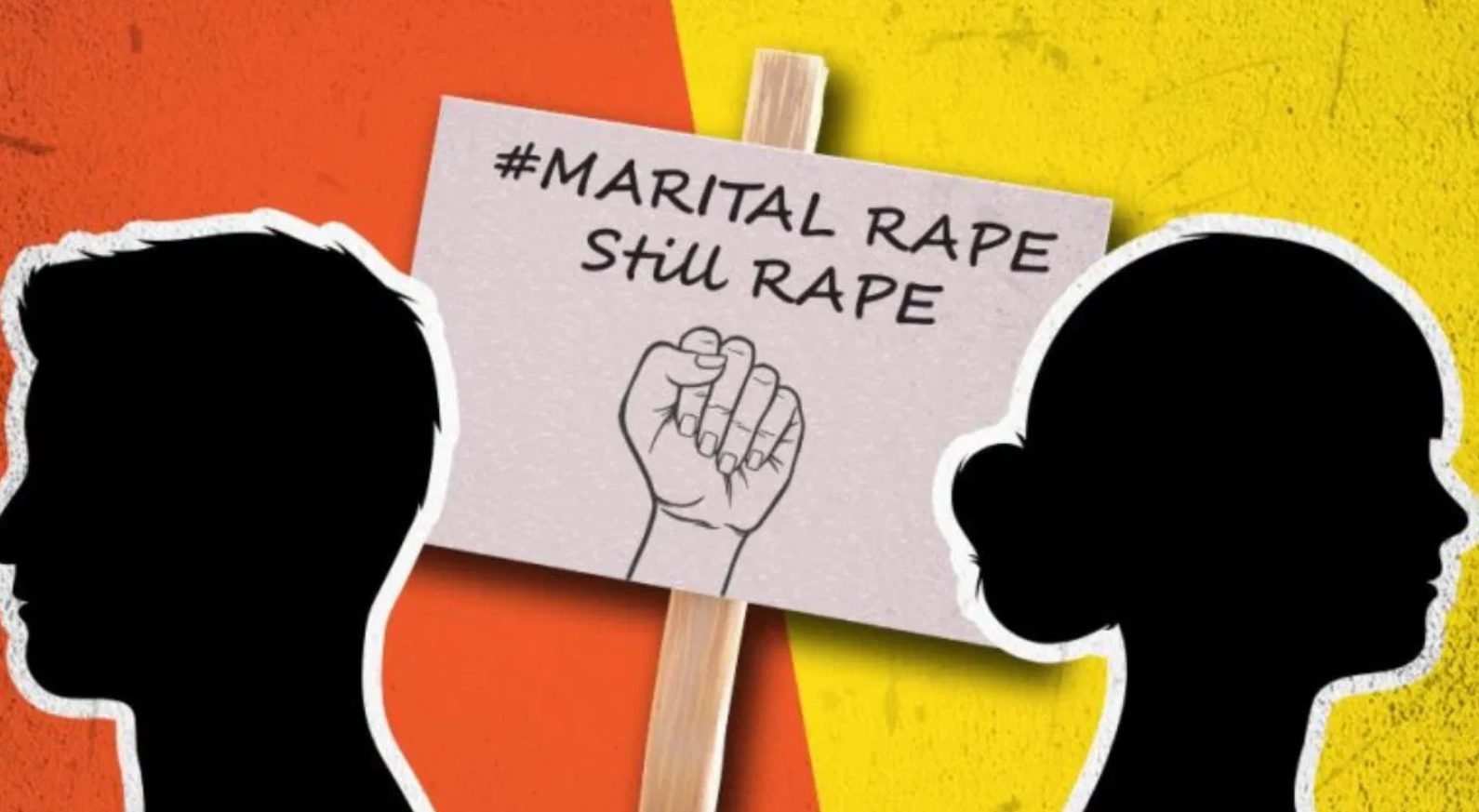STATUS OF MARITAL RAPE IN INDIA
BY- Guneet Kamboj
“Truth: Rape does indeed happen between girlfriend and boyfriend, husband and wife. Men who force their girlfriends or wives into having sex are committing rape, period. The laws are blurry, and in some countries marital rape is legal. But it still is rape.”
BY- Patti Feuereisen
INTRODUCTION
Marital rape or spousal rape is the act of having sexual relations with one's spouse without their consent. The most crucial aspect is the lack of authorization, which does not have to be followed by physical violence. Domestic violence and sexual assault that occurs while two people are married is known as marital rape. Although sexual intercourse between spouses was historically considered a right of couples, it is today considered rape in many nations throughout the world, which is prohibited by international agreements and becoming progressively criminalized.

Since the second half of the twentieth century, concerns of sexual and domestic violence inside marriage and the family unit, particularly violence against women, have attracted increasing international attention. Even so, in many nations, marital rape is either legally, but commonly allowed, or it is prohibited but widely tolerated. Due to causes ranging from authorities' reluctance to prosecute the crime to a lack of public awareness that sexual intercourse in marriage without consent is prohibited, laws are rarely implemented.
Women, though not solely, are more commonly victims of marital rape. Marital rape is a type of violence that occurs frequently in violent relationships, and it is often a chronic form of violence for the victim. It is embedded in a complex web of state governments, cultural traditions, and societal ideas that interact to influence each unique event and situation in different ways. Traditional views of marriage, interpretations of religious doctrines, ideas about male and female sexuality, and cultural expectations of a wife's subordination to her husband have all been blamed for the unwillingness to define non-consensual sex between married couples as a crime and prosecute it. These views are still prevalent in many parts of the world.
In most Western countries, these views of marriage and sexuality began to be challenged in the 1960s and 1970s, particularly by second-wave feminism, leading to the recognition of a woman's right to self-determination (i.e., control) over all matters relating to her body, as well as the removal of the exemption or defense of marital rape.
From the late twentieth century forward, most countries criminalized marital rape; before the 1970s, only a few legal systems allowed for the prosecution of rape within marriage. Removal of statutory exemptions from rape definitions, judicial rulings, explicit legislative references in statute law prohibiting the use of marriage as a defense, or the introduction of a unique offense of marital rape is all examples of criminalization. Although it is uncertain whether marital rape is covered by regular rape laws in many countries, non-consensual sexual encounters, including coercion in several nations may be punished under wider legislation forbidding violence, such as assault and battery laws.
MARITAL RAPE CONTRIBUTING FACTOR FOR DOMESTIC VIOLENCE
In India, domestic violence has been a long-standing problem that has only gotten worse in recent years. Domestic abuse affects roughly 70% of Indian women, according to the National Crime Records Bureau's (NCRB) 'Crime in India' 2019 study. Marital rape is one of the many manifestations of domestic violence. Marital rape or forcing your spouse to have sex without their consent is unjust, but an all-too-common method of demeaning and disempowering women. Today, more than 100 countries have passed laws prohibiting marital rape, yet India is one of just 36 countries where the crime remains unpunished. Despite multiple modifications to criminal law designed to protect women, India's failure to criminalize marital rape undermines women's dignity and human rights.
LAWS DECRIMINALISING MARITAL RAPE
All forms of sexual assault involving non-consensual contact with a woman are included in the definition of rape codified in Section 375 of the Indian Penal Code (IPC).
Exception 2 to Section 375 allows for the non-criminalization of marital rape in India.
Exception 2 to Section 375, on the other hand, exempts reluctant sexual intercourse between a husband and a wife over the age of fifteen from the definition of "rape" under Section 375, and so protects such actions from prosecution.
After entering into marital intercourse, a wife is presumed to give her husband eternal agreement to have sex with her.
In India, the concept of marital rape exemplifies what we call "implied consent." Marriage between a man and a woman in this context implies that both parties have agreed to engage in sexual activity, and it cannot be otherwise.
MARITAL RAPE: VIOLATION OF BASIC RIGHT?
The doctrine of coverture, which refers to the non-criminalized nature of marital rape, dates back to the British era. The theory of blending the woman's identity with that of her husband was heavily influenced by and developed from the practice of marital rape.
A married woman was not regarded as a separate legal entity when the IPC was created in the 1860s.
The IPC's marital exemption was drafted based on Victorian patriarchal traditions that did not acknowledge men and women as equals, did not allow married women to hold property, and blended husband and wife identities under the "Doctrine of Coverture.
" Article 14 Violation: Marital rape is a violation of the Indian constitution's guarantee of equality, which is established in Article 14.
The Exception divides women into two groups based on their marital status and protects males from committing crimes against their spouses.
As a result, the Exception allows married women to be victimized only because of their marital status, while unmarried women are protected from the same offenses.
Defeats the IPC's Section 375 Spirit: Section 375 of the Indian Penal Code was established to protect women and punish those who indulge in the brutal act of rape.
Exempting husbands from punishment, on the other hand, runs counter to that goal because the penalties of rape are the same whether a woman is married or not.
Furthermore, because they are legally and financially bound to their spouses, married women may find it more difficult to escape abusive situations at home.
Violation of Article 21: According to the Supreme Court's creative interpretation, rights entrenched in Article 21 include, among other things, the rights to health, privacy, dignity, safe living conditions, and a safe environment.
JUDGEMENT AGAINST MARITAL RAPE
The Supreme Court mentioned in State of Karnataka v. Krishnappa that sexual violence is an unlawful invasion of a woman's right to privacy and sanctity, in addition to being a demeaning act.
The Supreme Court associated the right to make sexual activity choices with the rights to personal liberty, privacy, dignity, and physical integrity under Article 21 of the Constitution in the case of Suchita Srivastava v. Chandigarh Administration.
CONCLUSION
Husbands and wives now have separate and independent legal identities under Indian law, and much current jurisprudence is particularly focused on women's protection. As a result, it is a pastime for the legislature to recognize this legal flaw and eliminate Section 375 (Exception 2) of the IPC, bringing marital rape under the jurisdiction of rape legislation.
REFERENCES
http://www.legalservicesindia.com/article/2369/Marital-Rape.html
https://en.wikipedia.org/wiki/Marital_rape#:~:text=The%20Criminal%20Law%20(Rape)%20


